‘So many opportunities’ – Students tell Gov. Kelly Ayotte how technical education opens doors for their future
|
Published: 03-06-2025 3:29 PM
Modified: 03-06-2025 5:51 PM |
Gov. Kelly Ayotte walked through the different programs at the Concord Regional Technical Center and asked students about their plans for the future and staff about their relationships with local businesses.
“This program is so wonderful and provides so many opportunities,” said Maddie Short, a junior who studies theater at CRTC. “Having her get to see that is awesome.”
The governor’s visit on Thursday follows weeks of vocal support for opening pathways into the trades through career and technical education and community college.
Theater isn’t a common program at career and technical education centers in the state, but Short highlighted the array of paths available to her.
“For every actor out there, there’s ten people who help make them look good, sound good,” Short said, from set design and lighting to costumes and sound. “You can really make anything into a career from it.”
Talking with students from across the region, Ayotte was keen to hear about their plans after high school and how they might apply their learning to enter the workforce.
She supports an easier transition for students from high school technical centers to a community college or certificate program.
“I think that whole pathway is terrific… making sure the whole system works for our students, especially in these career areas, like career technical education, where we have a lot of gaps,” Ayotte said.
Article continues after...
Yesterday's Most Read Articles
 Blasting set at Swenson Granite quarry, which may resume full operations this summer
Blasting set at Swenson Granite quarry, which may resume full operations this summer
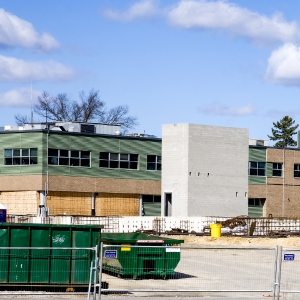 Work continues on new state psychiatric hospital in Concord
Work continues on new state psychiatric hospital in Concord
 As part of sweeping cuts, House budget writers vote to abolish nearly 200 positions from N.H. Department of Corrections
As part of sweeping cuts, House budget writers vote to abolish nearly 200 positions from N.H. Department of Corrections
 New Hampshire law enforcement to step up traffic enforcement on Route 106
New Hampshire law enforcement to step up traffic enforcement on Route 106
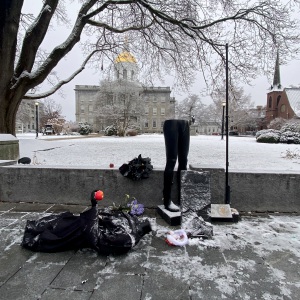 Three arrested in connection with vandalism of Satanic Temple holiday display
Three arrested in connection with vandalism of Satanic Temple holiday display
 A New Hampshire ski resort bets on tech to compete with industry giants
A New Hampshire ski resort bets on tech to compete with industry giants
Concord student Oliver Richert explained how coming out of the program with a certification to be a licensed nursing assistant means he will be able to work per-diem as he pursues further education, either towards becoming a nurse practitioner or another path into medicine.
From instructors and school officials at CRTC, Ayotte heard about ways the state could help open more doors for students, both into high school trade programs and from those programs to the workforce.
As Kimberly Hannon’s cosmetology students practiced facials, she asked Ayotte to consider changing licensing requirements to better include what students learn in high school tech programs and reduce the financial hurdles towards starting work.
In some ways, Hannon said, “when they go into a shop, they’re starting at square one.”
Whether in cosmetology, culinary, or other programs, Ayotte said she wants to improve credit transfers between high schools, tech programs and community colleges up through to four year colleges.
“We need to make sure… the kids can get the credit that they need, and they can take that credit with them,” she said in an interview afterward. “I think we can do better there.”
Ayotte asked CRTC Principal Anne Fowler if the state could do more to support the program. Fowler had one thing at the top of her mind: address state funding shortfalls.
CRTC takes in students from more sending towns and districts than any other career and tech center in the state. Under state law, the Department of Education is required to pay for 75% of the per-pupil tuition those schools pay Concord for their students to take classes at the tech center. When it doesn’t, the balance is charged back to sending school districts, which can lead to a downshifting of costs or reduced budgets to send students.
A recent Monitor analysis found that, despite vocal bipartisan support for career and technical education, the state has covered less of that bill every year since 2020. Meanwhile, tuition has steadily risen. While the state budget is a work in progress and can be modified, Ayotte’s current proposed spending plan would flat-fund that portion of the budget, further declining per-student tuition support.
Ayotte, speaking with the Monitor, emphasized wanting to get more local kids students programs like those offered in Concord.
“We need to make sure that we can get even more students into that program — I know they have a wait list,” she said. “This is a very important issue of focus for me.”
Increasing state tuition support, however, would not be her first approach.
“I’m going to continue to focus on other ways we can create more paths forward,” she said, emphasizing that her proposed budget would increase other education spending, including money for special education and dual enrollment programs with community colleges.
CRTC applications were due in February, and decisions about which students are accepted — and how many each district will send — happen by April.
Catherine McLaughlin can be reached at cmclaughlin @cmonitor.com. You can subscribe to her newsletter The City Beat at concordmonitor.com.

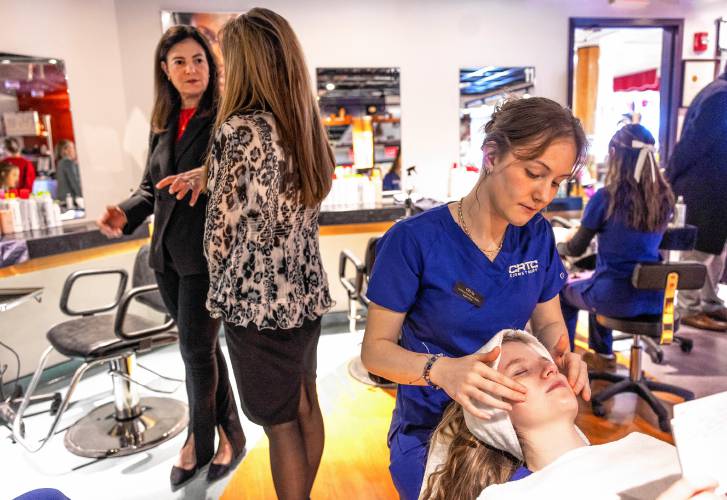
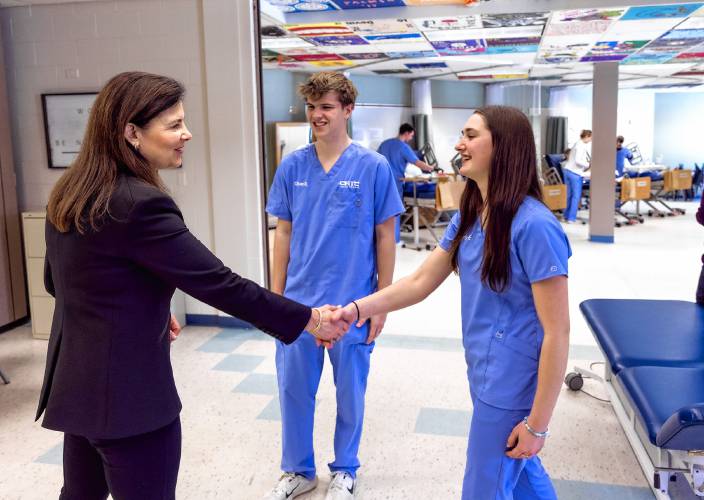
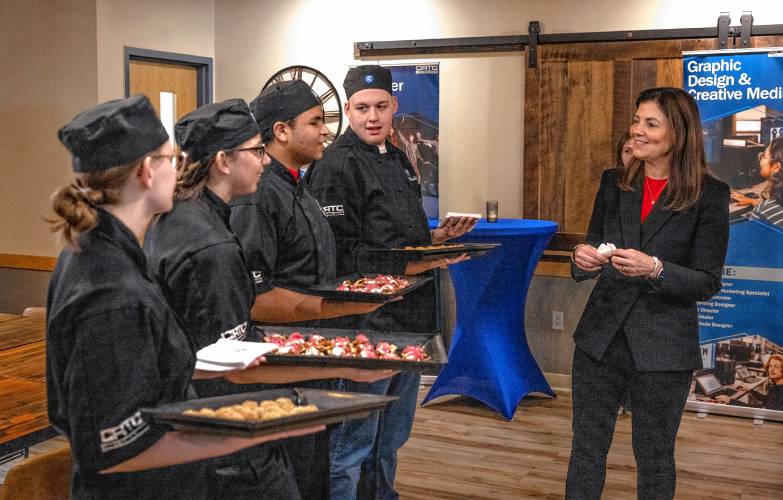
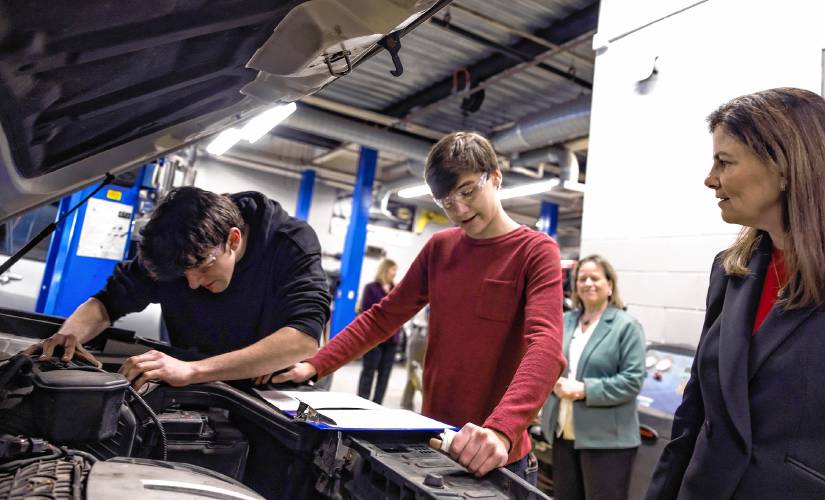
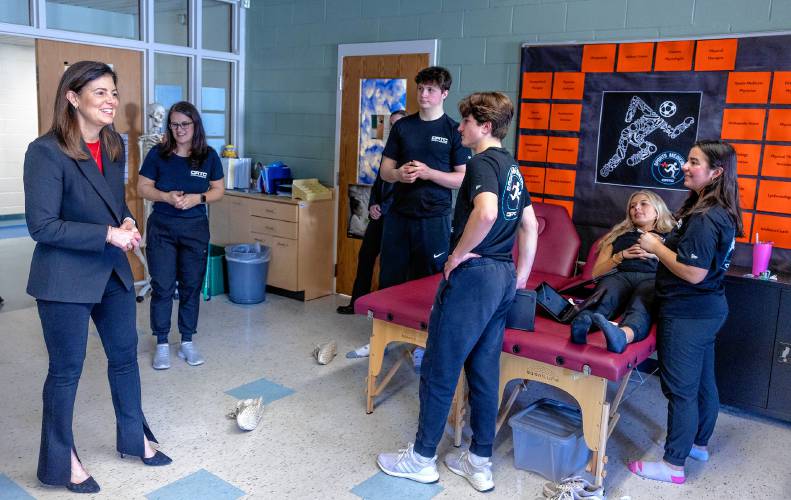






 Henniker ponders what is a ‘need’ and what is a ‘want’
Henniker ponders what is a ‘need’ and what is a ‘want’ Boscawen residents vote to fund major renovation of public works building
Boscawen residents vote to fund major renovation of public works building ‘Voting our wallets’: Loudon residents vote overwhelmingly against $1.7M bond for new fire truck
‘Voting our wallets’: Loudon residents vote overwhelmingly against $1.7M bond for new fire truck In Pembroke, Education Freedom Accounts draw debate, voters pass budget
In Pembroke, Education Freedom Accounts draw debate, voters pass budget
